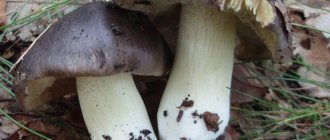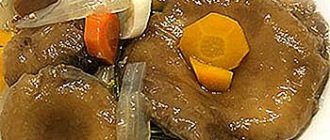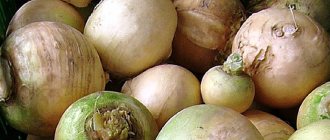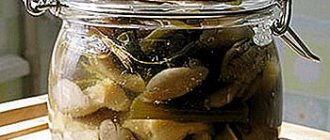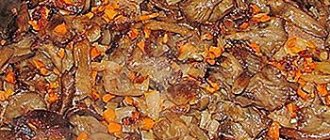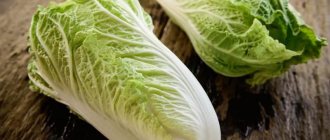There is no garden where weeds do not grow. Dealing with them is quite difficult, and it is a labor-intensive and tedious process. Weeds are ubiquitous and adapt well to any conditions. If you don’t get rid of them in time, they will occupy the entire garden. It is believed that weeding is the most effective method of controlling weeds, but this is far from true. Not only is it hard work and time-consuming, but there is also no guarantee that you will get rid of them forever, especially for perennial weeds.
Nevertheless, experienced gardeners successfully use unconventional methods to combat these annoying invaders, having long ago abandoned dangerous chemicals.
Vinegar as a herbicide
Vinegar against weeds is one of the effective means, and it is safe for humans, pets, cultivated plants and soil. It destroys almost any weed plant. By the way, you can also get rid of ants with it. If you dilute 40% vinegar in half with water and spray the places where insects accumulate, the smell will quickly scare them away and they will disappear.
However, you should know that vinegar can destroy not only weeds, but also the crops it touches. Therefore, for a better effect, it is necessary to improve the methods of its use.
Why is vinegar effective in controlling weeds?
Vinegar's ability to destroy weeds is due to its acidic properties. When spraying grass with the product, destructive processes occur in it:
- The weed cell membranes are destroyed.
- Photosynthesis is blocked.
- Metabolic processes slow down and stop.
This causes complete death of the plant. Most herbicides only kill the top part of the weed, meaning they provide only a temporary effect. Products with vinegar also affect the root system, as a result of which the plant dies completely.
Methods of application
It is best to use a pump sprayer or bottle with an aerosol attachment for the vinegar solution. This method is especially good for destroying weeds that occupy a large area: on paths, areas or that part of the garden where vegetables and herbs grow sparsely.
Vinegar should be used against weeds on a calm, sunny day. The absence of wind will not allow the solution to reach useful plants, and the sun will further enhance its effect. If you need to selectively apply vinegar to the weeds, it is better to do this with a brush dipped in the solution.
You need to spray the solution generously so that the leaves and stems are soaked in it. A couple of days after this, the result will be visible. Sometimes particularly persistent weeds require re-treatment.
Please note that it is advisable to use vinegar against weeds before seeds begin to form. It’s good to do this in early spring, when they just appear. Perennial weeds are best treated in the fall. Since at this time, due to the natural cycle of plants, nutrients are absorbed through the leaves, vinegar, once on them, penetrates deep into the weed’s body, reaches the roots and completely destroys them.
Eco-friendly destruction: recipes with vinegar
Even those plants that are resistant to chemicals can be killed using vinegar against weeds. The recipe is as follows: a 40% solution is diluted in equal parts with water and the weeds are sprayed with the resulting product.
There are several more recipes that experienced summer residents have long adopted:
- 5 glasses of vinegar (6%) are diluted in 2 liters of water. This amount is usually enough to process 2 acres. Just try not to get on cultivated plants, otherwise they will be burned.
- Mix 3 parts table vinegar (9%) and 1 part lemon juice. The resulting mixture is poured into a spray bottle and the weeds are carefully sprayed with it.
When a more pungent mixture is needed, vinegar and salt are used against weeds.
Precautionary measures
Even vinegar diluted with water is a volatile chemical that can cause serious burns to the respiratory tract, mucous membranes and skin. Precautionary measures when working with vinegar solutions are required:
- The solution is prepared and processed using rubber gloves and a respirator.
- Dilute the product in a well-ventilated, ventilated area or outdoors.
- Do not allow the composition to splash or come into contact with the skin or eyes.
- After work, wash your hands thoroughly with soap.
Important! If the product gets on the skin, immediately wash the affected area with plenty of water.
Killer mixture
When table salt is added to the vinegar solution, the result is a truly explosive mixture that leaves the weeds no chance of survival. With its help, you can permanently get rid of weeds near fences, as well as clear all paths of weeds. In addition, this is a very effective way to combat perennials that can constantly germinate.
How to use vinegar and salt against weeds? The proportions of the mixture are as follows: water (1 l), table vinegar (5 tablespoons), salt (2 tablespoons). Bring the water to a boil, then add vinegar and salt, stir well and pour the hot solution onto the weeds. Just do this with extreme caution so that the liquid does not get on neighboring plants.
By the way, salt can be used without vinegar. If you sprinkle it on the garden bed, leaving a little space from the roots of the planted crops, it will not only destroy weeds, but also, after watering, seeping into the upper layers of the soil, it will not allow new ones to sprout.
Herbicidal soap
They need to spray the weeds, covering the beneficial plants with a screen of thick paper. Moreover, the mixture is more effective on a hot sunny day.
To prepare herbicidal soap, you will need vinegar and salt (they have proven themselves excellent against weeds) and, in fact, soap (liquid).
The composition of the mixture is as follows: white vinegar (1 l), table salt (150 g) and one syringe of liquid soap. Salt is poured into a bottle, filled with vinegar and soapy liquid is added. Then the solution is thoroughly shaken and poured onto the weeds, making sure that the composition does not flow under the cultivated plants.
A “killer” mixture is obtained if you use 15-20% vinegar.
Preparation of vinegar solution
The most important thing to consider before use is the acidity level of the vinegar. It is acetic acid that burns unwanted plants. This substance can be used alone or in combination with other components. Such ingredients make the drug more effective.
Vinegar also has an effect on some pests. For example, it perfectly fights ants, which often live both in the vegetable garden and in the garden. So, the recipe for preparing such a natural herbicide consists of the following steps:
- You need to prepare 1 liter of vinegar and 10 ml of any dishwashing detergent or liquid soap.
- Both components are thoroughly mixed and the solution is used for spraying.
This is the simplest, but very effective option for preparing the solution. You can make a more concentrated mixture, without adding soaping agents. For this you will need:
- liter of vinegar;
- a tablespoon of lemon juice.
This solution has a high acid content, due to which it has an excellent effect on unwanted plants. But this is not the limit. The following remedy can fight even the most annoying plants. It is necessary to mix in one container:
- 1 liter of vinegar.
- 6 tablespoons lemon juice.
- 4 teaspoons dishwashing detergent or soap.
- 6 tablespoons of alcohol.
To combat small weeds, dilute the mixture half and half with water. You can also make an excellent herbicide using regular salt and soap. To do this we take:
- vinegar – 1.5 l;
- salt – 30 grams;
- liquid soap – 1 teaspoon.
You can also add essential oils to vinegar. Orange or clove oil is suitable for these purposes. Just one tablespoon of essential oil is dissolved in a bottle of vinegar. The mixture should be thoroughly beaten so that the oil does not float on the surface.
Soda - summer resident's assistant
Any housewife knows how useful soda is in everyday life. But few people know that soda is also necessary in the garden. Vinegar has already proven its effectiveness against weeds. Let's talk about baking soda now.
To get rid of small weeds that grow between the tiles of the paths, just water them with a strong soda solution.
But sodium bicarbonate is effective for more than just killing weeds. Every summer resident is familiar with such a plant disease as powdery mildew. Those who have tried various chemical treatments will be pleased to know that soda copes well with this scourge. Here are two tried and tested recipes:
- Take 5 liters of water, dilute 2 tbsp. spoons of soda and 1 tbsp. a spoonful of liquid soap. The resulting solution should be sprayed on the plants before flowering, and after it, observing a weekly interval, treat 3 more times.
- Pour the following mixture into the sprayer: water (1 l) and taken 1 tbsp. spoon soda, vegetable oil and liquid soap. After shaking well, spray the plants with this mixture once a week, trying to do this in dry, cloudy weather.
Reviews from gardeners and gardeners
Now there are many different gardening forums where lovers of growing fruits and vegetables on their plots exchange tips and share personal experiences. The discussion of the topic of salt and vinegar against weeds does not go unnoticed. The reviews are all the most positive. Moreover, even the most ardent admirers of the use of chemicals are now inclined towards this method of struggle. In addition, gardeners do not stop experimenting, using well-known recipes, adding their own innovations to them, improving them, making them more effective.
Those who have tried the methods described above to combat weeds claim that they have very little chance of survival. A powerful arsenal of tools makes it possible to get rid of weeds, if not forever, then for a long time. Ogorodnikov is pleased that simple, accessible means can be used in this fight.
Salt and vinegar for weeds
The harm from weeds in garden beds is obvious: they deprive cultivated plants of moisture and nutrients contained in the soil, large specimens shade young shoots, and in some cases weeds can be a source of diseases or pests. In the past, weeds were dealt with mainly by mechanical means, but now summer residents have a wide selection of tools to make work in the garden easier.
Note: There are a wide variety of herbicides on the market that are considered relatively safe for humans and the environment. But still, these substances are chemicals and cannot be called completely harmless.
Fortunately, there is a so-called intermediate option. Every housewife has salt and vinegar in her kitchen, and if you are tired of constantly weeding out weeds, but do not want to fight it with chemicals, you can easily use them to eliminate vegetation.
In its composition and mechanism of action, vinegar is in many ways similar to herbicides:
- Getting on the leaves and stems of plants, vinegar burns the cell membranes, causing them to dry out and gradually die.
- Vinegar can stop cell division and photosynthesis processes. Thus, the growth of the grass immediately stops and it quickly dies.
- The substance penetrates not only into the above-ground parts, but also into the root system. This provides a comprehensive effect and prevents the formation of young growth.
In addition, vinegar can quickly stop all metabolic processes in plant cells. This leads to cellular depletion of the weed and it begins to dry out quickly.
In some cases, vinegar is mixed with salt to increase efficiency. To understand the mechanism of action of such a mixture, its effectiveness and possible consequences, it is worth considering the features of using each substance separately.
Vinegar for weeds
Vinegar contains acids that cause plant cells to burn when they come into contact with leaves and stems. It is this property of the product that summer residents began to use to their advantage in the fight against weeds (Figure 1).
It is important that acetic acid is absolutely safe not only for humans and animals, but also for the soil and the environment. In addition, the harvest harvested from beds treated with vinegar will be completely organic.
Figure 1. Using vinegar to control weeds
According to the mechanism of action, vinegar can be compared to continuous action herbicides. The fact is that it is capable of destroying the cells of any plants, including cultivated ones. Therefore, to control weeds using this method, the substance must be poured not into a sprayer, but into a small spray bottle and spot spray the weeds. In addition, experienced gardeners recommend processing during the active growth phase of weeds, although in some cases later processing is allowed. The main thing is to have time to spray the weeds before the seed pods begin to form, since vinegar does not affect the seeds.
Weed salt
Salt is also considered a powerful weed control agent. Moreover, its effect is so pronounced that even if you simply sprinkle salt on a certain area and do not take any additional actions, plants will not grow in this place for several years (Figure 2).
Figure 2. Destruction of vegetation with salt
This pronounced effect of salt does not allow its use in garden beds, so it is most often used to remove unwanted vegetation in the garden, along the fence or on garden paths.
